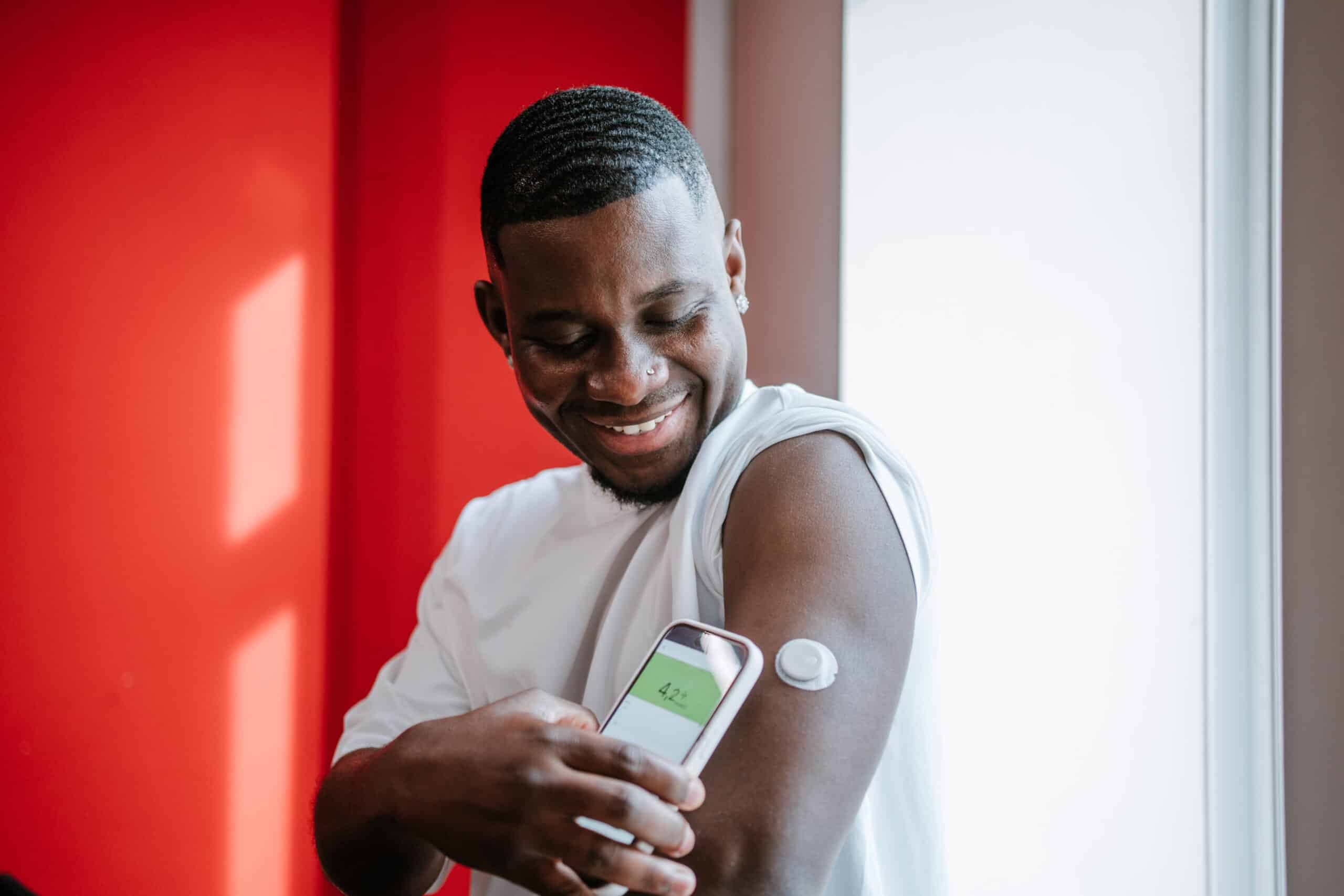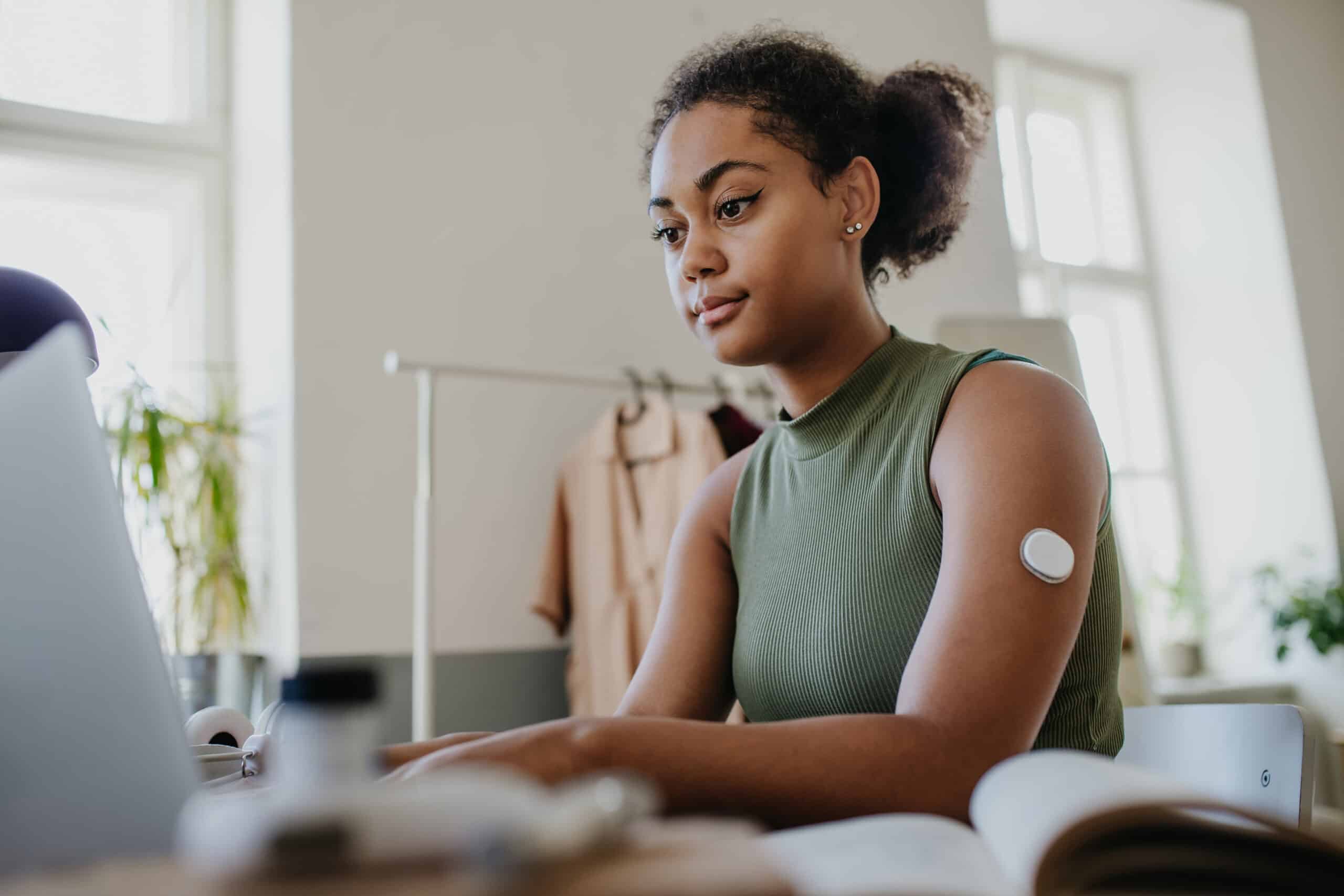
Type 1 diabetes, also known as juvenile diabetes or insulin-dependent diabetes, is a chronic autoimmune disease that impairs the pancreas’s ability to produce insulin.
Insulin is crucial for enabling sugar (also known as glucose) to enter cells and create energy in the body. Factors like genetics and certain viruses are believed to contribute to the development of Type 1 diabetes. Although it typically manifests in childhood or adolescence, it can also occur in adults.
Despite extensive research, there is currently no cure for Type 1 diabetes. Treatment focuses on regulating blood sugar levels through insulin therapy, dietary adjustments, and lifestyle management to minimize the risk of complications.
The Minority Health Institute reported that Black American adults were 60 percent more likely to be diagnosed with diabetes by a physician.
This statistic stems from various factors such as Black and Brown communities having an abundance of fast food or unhealthy food options in their neighborhoods. Other issues include a shortage of finances to afford healthier food options, not exercising regularly, and a lack of education on overall health.
While Black Americans have a lower rate of experiencing Type 1 diabetes, they often experience more difficulties once diagnosed.
Diabetic retinopathy affects African Americans at a rate 46 percent higher than that of non-Hispanic whites and Black Americans experience end-stage renal disease from diabetes at a prevalence 2.6 times higher than that of non-Hispanic white Americans.
What are Clinical Trials?
Clinical trials are typically conducted in four phases, each serving distinct purposes in evaluating the safety and effectiveness of a new medical intervention, such as a drug or treatment. Here’s an overview of each phase:
- Phase I trials test if a new treatment is safe and look for the best way to give the treatment. Doctors also look for signs that the illness responds to the new treatment. This phase usually involves a small number of healthy volunteers (20-100) or sometimes patients with the disease the drug is intended to treat.
- Phase II trials test if one type of cancer or illness responds to the new treatment, which typically involves a larger group of patients (typically several hundred) who have the condition the intervention is designed to treat.
- Phase III trials test if a new treatment is better than a standard treatment and involve a much larger group of patients (often several hundred to several thousand).
- Phase IV trials find more information about long-term benefits, side effects, which include monitoring the intervention’s long-term safety and effectiveness in a larger population over an extended period.
These four phases of clinical trials are designed to systematically gather data on safety, efficacy, and other factors related to the treatment under investigation. Each phase builds upon the knowledge gained from the previous one, to determine whether the treatment should be approved for widespread clinical use. In essence, clinical trials not only validate new treatments but also drive innovation and improve patient care by integrating scientific rigor with patient-centered outcomes.

Benefits of Participating in a Type 1 Diabetes Clinical Trial
The American Heart Association reported that in 2024, 9.7 million adults had undiagnosed diabetes, 29.3 million had diagnosed diabetes, and 115.9 million had pre-diabetes. Based on these high statistics, it’s inevitable that we need prevention, treatment and cures.
By participating in a clinical trial, you contribute to the development of life-saving treatments that are not yet widely accessible. This can bring hope and enhance health outcomes for individuals affected by conditions like Type 1 diabetes.
Furthermore, involvement in clinical trials directly supports scientific advancements in diabetes research, thereby expanding our knowledge and therapeutic choices. Participants also receive attentive monitoring and care from healthcare professionals engaged in the trial, ensuring their safety and well-being throughout the study duration.
Types of Clinical Trials for Type 1 Diabetes
The Mayo Clinical Research Center is currently overseeing 71 ongoing trials focusing on Type 1 Diabetes. Among these studies, significant attention is directed towards investigating the impact of BKR-017 (colon-targeted 500 mg butyrate tablets) on insulin sensitivity, glucose control, and triglyceride levels in subjects with Type 1 diabetes. This research aims to uncover important information on new ways to improve how patients in this group are treated.
Finding a Clinical Trial for Type 1 Diabetes
To find a clinical trial that meets your specific needs, it’s best to start by asking your doctor. They may know of studies that could be appropriate for you or can refer you to a reliable source. Additionally, there are online search engines that you can utilize, such as BlackDoctor.org, ResearchMatch, Diabetes Trial Net, Type 1 Diabetes Exchange and JDRF Clinical Trial Connection.
These platforms allow you to search for trials based on criteria like location, medical condition, and eligibility criteria. It’s important to thoroughly review any potential trials and discuss them with your doctor to make an informed decision about participation. You can also have a look at the National Institute of Health Research (NIHR) Be a part of Research website to search for current Type 1 diabetes clinical trials.
During your search, narrow down search results using filters such as trial phase, eligibility criteria, and study location to find trials that align with your specific needs and preferences. Regularly monitor and update your search criteria to stay informed about new clinical trial opportunities and advancements in medical research relevant to your health condition or interests.
After narrowing down your search for a clinical trial, always be sure to speak with your medical provider for more insight and guidance. It’s crucial to discuss any potential trials in detail to ensure they align with your health needs and goals.
Considerations for Participation
Clinical trials establish specific eligibility criteria to ensure safety and efficacy, requiring participants to have the condition under study and meet health standards. These criteria, including age, gender, health status, medical condition, and treatment history, provide essential background for researchers.
Patient concerns about safety and treatment effectiveness are addressed through clear communication, informed consent, rigorous monitoring, and post-trial care plans, allowing participants to withdraw at any time without repercussions.

Black individuals should participate in clinical trials to advance medical research and contribute to the development of new treatments for Black patients who are in critical need.
By doing so, Black participants allow researchers to understand better how to apply new findings to support the health needs of Black individuals with the diagnosis at hand and for years to come.
Participation also helps address historical disparities in healthcare and ensures equitable treatment in medicine.
Final Thoughts
Clinical trials play a crucial role in advancing treatment options for Type 1 diabetes by testing new therapies and interventions that could potentially enhance patient outcomes. These trials are essential in expanding our understanding of the disease and identifying innovative approaches that may offer improved management and quality of life.
For patients considering participation, clinical trials represent a beacon of hope, offering the possibility of accessing cutting-edge treatments not yet widely available. They empower individuals by providing an opportunity to contribute directly to medical progress while receiving expert care and monitoring throughout the study. When choosing to participate in clinical trials, it is a powerful step towards a future with better treatments and ultimately, a cure for Type 1 diabetes.








